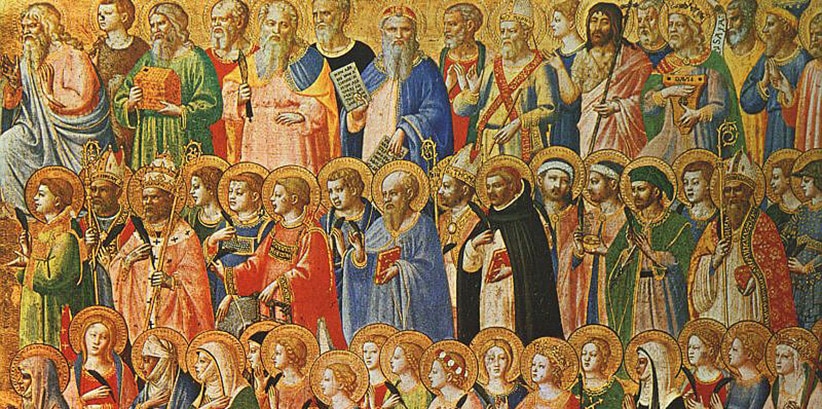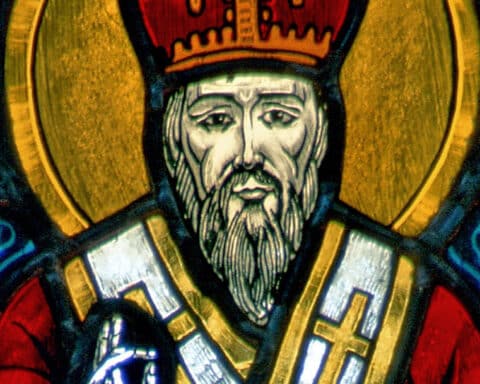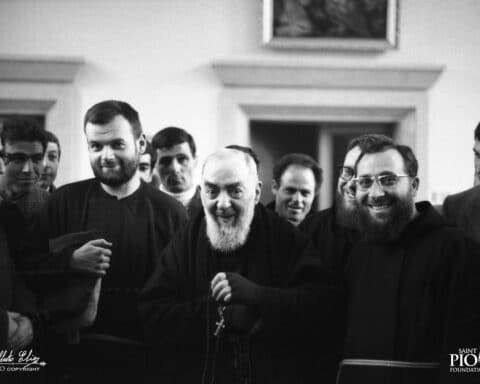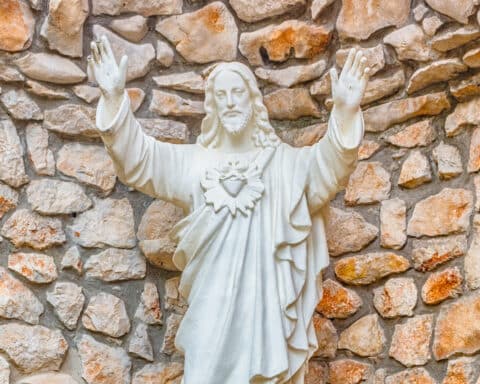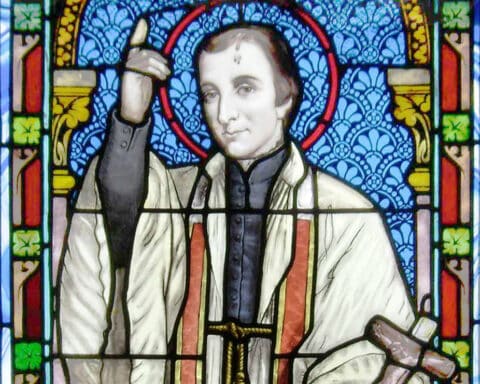
— Adele Grady, via email
Answer: The list we have today in the first Eucharistic prayer is ancient. It comprised those saints who enjoyed a special veneration in Rome in the first three centuries. In the first place, there are the apostles, followed by several early popes: Linus, Cletus, Clement, Sixtus and Cornelius. St. Cyprian was closely linked to Cornelius, and they share a feast day. Lawrence was one of the seven deacons of Rome and widely noted for his care of the poor. Of Chrysogonus, John and Paul we know little except that they were Roman martyrs and widely venerated in the Roman Church. Cosmas and Damian were physicians and widely known for their medical care of the poor. The second list of saints begins with saints well known from Scripture: St. John the Baptist, Stephen (the first martyr), Matthias (who replaced Judas) and Barnabas (who accompanied St. Paul on the first missionary journey). Following them are several early bishops and priests who were martyred and venerated in Rome: Ignatius, Alexander, Marcellinus and Peter. Lastly, there are seven women who were martyrs and highly venerated in Rome: Perpetua and Felicity, Agatha, Lucy, Agnes, Cecilia and Anastasia. This list became fixed as the Roman Canon also became fixed.
Confusing Scripture
Question: There must be some logical explanation of these passages from Romans : “Yes, affliction and distress will come upon every human being who does evil, Jew first and then Greek. But there will be glory, honor, and peace for everyone who does good, Jew first and then Greek. There is no partiality with God” (2:9-11). But it does sound like partiality to me. Can you explain?
— Dorothy Perez, San Antonio, Texas
Answer: St. Paul’s overall point in Romans 2 is that the Jews of his time should not gloat at the criticisms he leveled at the gentiles in Romans 1. Speaking to his fellow Jews at the beginning of Chapter 2, St. Paul says: “Therefore, you are without excuse, every one of you who passes judgment. For by the standard by which you judge another you condemn yourself, since you, the judge, do the very same things” (Rom 2:1). In other words God is not going to be impressed or judge a person differently simply because they are a Jew rather than a gentile. God will use the same standard to judge everyone: God “will repay everyone according to his works” (Rom 2:6).
That said, in justice, God will also judge everyone on what they could reasonably have known. Hence, he also writes: “All who sin outside the law will also perish without reference to it, and all who sin under the law will be judged in accordance with it” (Rom 2:12). Thus, while most of the moral law is written on the human heart (natural law), Jews also have commands about ceremonial precepts and are expected to follow certain customs as well. St. Paul says Jews will be judged under the Law while the gentiles will be judged according to the moral law but not according to the ceremonial and customary laws. While there is a distinction between Jew and gentile, there is only one standard: God will judge us by our deeds according to what we could have reasonably known.
But what of the verses you quote? It would seem the words “Jew first and then Greek” signify some superiority for the Jews. However, this need not be the case. The Greek word, translated here as “first” is proton, meaning before, at the beginning, formerly or first. So, “first” is not the best or only meaning of the words. Hence, the word “first” in this context can acknowledge the simple historical fact that the Jews were beforehand and at the beginning the first to be called. And the judgment of all Jews who went before was based on their deeds and what they reasonably knew through the Law. Gentiles are now coheirs with the Jews and, though called second, are now called to know Jesus, the Messiah, and will henceforth be judged by their deeds and according to what they should reasonably know.
Msgr. Charles Pope is the pastor of Holy Comforter-St. Cyprian in Washington, D.C., and writes for the Archdiocese of Washington, D.C. at blog.adw.org. Send questions to msgrpope@osv.com.

